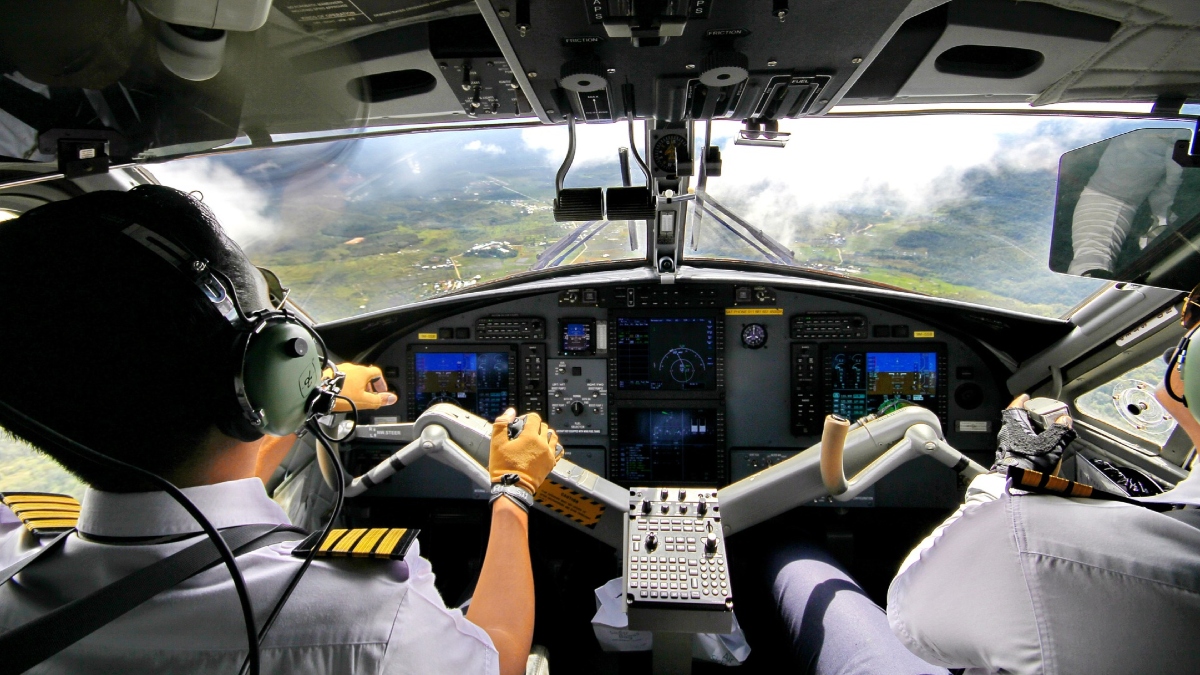An off-duty pilot traveling as a jump seat passenger in the cockpit of a Horizon Air passenger jet attempted to shut down the plane’s engines mid-flight, prompting a swift response from the crew to subdue him. The incident occurred during a San Francisco-bound flight on Sunday, forcing the aircraft to divert to Portland, Oregon.
The man responsible for the alarming incident has been identified as Joseph David Emerson, 44, by Oregon authorities. Emerson is currently in custody and faces numerous charges, including 83 counts each of attempted murder and reckless endangerment, along with one count of endangering an aircraft.
Seattle-based Alaska Airlines, the parent company of Horizon Air, confirmed that the threat came from an off-duty pilot who was authorized to occupy the cockpit’s jump seat. In a statement, the airline praised the quick response of the flight’s captain and co-pilot, stating that engine power was not lost, and the aircraft was secured without any further incident. The airline emphasized that no weapons were involved in the incident.
Passengers on board the flight described the confusion and tension as the situation unfolded, with one passenger, Bailey Beck, recounting that the man was handcuffed to a railing in the rear of the plane without causing further disturbance.
The Horizon Air Embraer 175, carrying 80 passengers and four crew members, took off from Everett, Washington, and landed in Portland about an hour later. Passengers were eventually able to continue their journey to San Francisco on a later flight.
The FBI office in Portland is currently investigating the incident, while the Federal Aviation Administration (FAA) issued an alert to airlines, revealing that the jump seat passenger attempted to disable the engines by deploying the engine fire-suppression system. The FAA is collaborating with law enforcement but declined to provide further details.
Emerson possesses a valid airline pilot’s license, according to FAA records. He is known to own a house in Pleasant Hill, California, though attempts to reach his family members have been unsuccessful.
Experts in the aviation field have noted that such events are exceedingly rare, with John Cox, a retired airline pilot and safety consultant, stating that it is not difficult to activate the fire handles on a jet. However, he added that it is possible to restart the engines once the fire handles are returned to their normal position.
This incident highlights the importance of the third pilot in the cockpit, who can be invaluable in dealing with complex situations. Jeffrey Price, an aviation-security expert, emphasized that the vetting of crew members is based on trust, and the incident demonstrated that the system worked effectively in preventing a potentially catastrophic situation.
While the use of the third seat for jump seat passengers is a standard procedure for airlines, Sunday’s incident is expected to lead to a review of procedures and a discussion on whether additional safeguards are necessary.
In the history of aviation, similar episodes are exceptionally rare. One notable incident occurred in 1994 when a FedEx pilot attempted to hijack a plane. More recently, in 2018, a pilot in the jump seat of a Boeing 737 Max played a crucial role in averting disaster during an Indonesian Lion Air flight.






